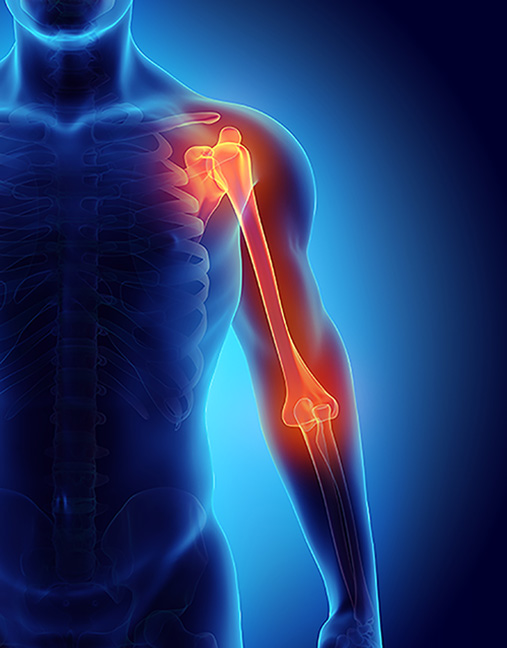Arthroscopic Surgery in India
Arthroscopy surgery is a minimally invasive surgical procedure used to diagnose and treat joint problems. It involves inserting a small camera, called an arthroscope, into the joint through a tiny incision. The camera displays images on a screen, allowing the surgeon to see inside the joint and perform procedures using small instruments.
Common Conditions Treated:
Torn cartilage (like a meniscus tear in the knee)
Ligament repairs (e.g., ACL reconstruction)
Inflamed joint linings
Loose bone or cartilage fragments
Rotator cuff tears
Joint infections
Why is Knee Arthroscopy Required?
Arthroscopy in India is offered by highly trained and experienced doctors at Max Hospital. This surgical procedure is used to diagnose and treat several conditions including –
- Anterior cruciate ligament reconstruction
- Infection of the knees
- Meniscal tear
- Misaligned patella
- Patellofemoral instability
- Removal of Baker’s cysts
- Swollen synovium
- Torn floating cartilage
Arthroscopic surgery allows the surgeon to make a small incision in the knee and place a scope with a camera into it. This arthroscopy helps the surgeon visualise the inside of the joints, the ligaments of the knee, and correct the condition with high levels of precision.


Pre-operative Preparation
Arthroscopic surgery in India is offered by expert doctors at Max Hospital.
- Your doctor will advise you about the pre-operative preparations needed to undergo this surgery. This usually involves abstaining from blood thinners and anti-inflammatory drugs for a few days.
- You may need to abstain from smoking for a few days to allow for quicker recovery and fewer risks of complications.
- Hospital admission with all records and medical reports will be necessary.
- On the day of the surgery, you will need to abstain from the consumption of food and fluids for a few hours.
The procedure of Knee Arthroscopy
- Knee arthroscopy may be performed under general anaesthesia, regional anaesthesia, or a local nerve block.
- It is a bloodless surgery and a small incision is made through which saline is pumped. Now, a pencil-sized instrument is placed in the incision.
- Max Hospital also offers advanced arthroscopic knee surgery in Delhi which allows the surgeon to repair some conditions affecting the knee through the same incision.
- Finally, the incision is repaired by the placement of stitches and bandaging the knee.
Methods/Techniques of Knee Arthroscopy
Arthroscopy is used successfully to treat many conditions. The techniques used depend on the specific condition that is diagnosed. The doctors at Max Hospital are experts at arthroscopy in India and employ some of these methods –
- Arthroscopic meniscectomy is used to remove the damaged tissue on the inner edge of the meniscus if there is no blood flow.
- Arthroscopic cystectomy is done to drain a cyst using a suction tool.
- Arthroscopic ACL reconstruction is used to reconstruct or repair the torn ligament through the arthroscope.
- Arthroscopy is also used to remove loose fragments of bone or cartilage using the accessory portals.

- Popularity and Availability:Arthroscopy has become a common procedure in India, with numerous hospitals and surgeons specializing in it.
- Wide Range of Applications:It’s used for diagnosing and treating conditions like torn menisci, ligament tears, cartilage damage, labral tears, rotator cuff injuries, and shoulder impingement, among others.
- Specialized Centers and Surgeons:Several hospitals, including Ganga Hospital and Max Healthcare, are recognized for their expertise in arthroscopic surgery and have dedicated teams of surgeons.
- Indian Arthroscopy Society (IAS):A national organization for arthroscopy surgeons in India, promoting academic excellence and collaboration in the field.
- Benefits of Arthroscopy:Minimally invasive nature leads to quicker recovery, less pain, and reduced scarring compared to traditional open surgery.
- Cost:The cost of arthroscopic procedures varies depending on the joint and the specific procedure, with Pristyn Care reporting prices ranging from Rs. 80,000 to Rs. 1,20,000.
- Pre-operative Preparation:Patients need to follow their doctor’s instructions, which may include abstaining from certain medications and smoking for a few days, and fasting before the surgery.
Benefits:
Smaller incisions
Less pain and scarring
Faster recovery
Shorter hospital stay (often same-day discharge)
Risks (though relatively low):
Infection
Bleeding
Blood clots
Damage to surrounding tissues
Recovery:
Varies depending on the joint and complexity of the surgery
Physical therapy is often needed
Return to normal activities can take a few weeks to a few months
Would you like information on a specific type of arthroscopy, like knee or shoulder?

